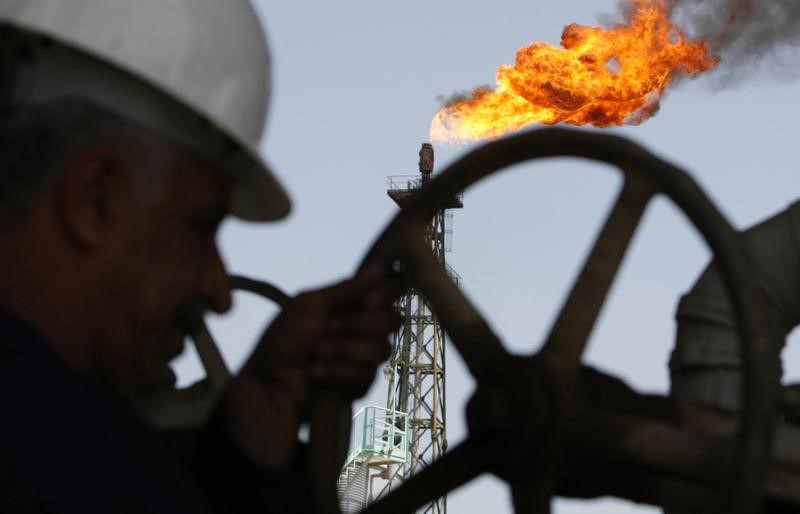By Barani Krishnan
Investing.com - Economic numbers and technical charts don't lie, much to the chagrin of oil bulls.
U.S. West Texas Intermediate and U.K. Brent prices retreated with considerable force on Friday from the rally earlier in the week following a contraction in eurozone manufacturing growth, led by Germany, and an unsightly picture building on the crude futures complex, where the spread between the front and back was blowing out to levels that appeared unsustainable.
WTI settled down 94 cents, or 1.6%, at $59.04.
Brent, the global oil benchmark, slid by 95 cents, or 1.4%, to $66.91 by 3:38 PM ET (19:38 GMT).
Even data showing an 11-month low in the U.S. oil rig count -- which indicates future production -- couldn't help WTI and Brent pull back from the day's losses. Oil rigs fell by nine this week, their fifth-straight week of declines, to 824, the lowest since April 2018. U.S. oil drilling has continued to slide lately, despite crude prices rising by a third this year.
The selloff was also remarkable coming so soon after WTI's rise to four-month highs above $60 this week after data from the U.S. Energy Information Administration showed a surprisingly huge drop in U.S. crude inventories.
Notwithstanding Friday's price drop, WTI was up 0.4% on the week, and showed a rise of nearly 3% so far for March. Year-to-date, the U.S crude benchmark has a 30% gain while its U.K. peer is up 24%, bolstered by OPEC production cut plans that could at least until June.
Hedge funds and other speculators long on oil are counting on OPEC to step in and announce deeper output cuts should the drop in crude prices ever get worrying. The cartel has tacitly assured the market that it will stay ahead of any faltering demand by ensuring it always supplied a little less than what consumers need.
Even so, the double whammy of a Chinese slowdown and its drag on Europe may be too much to discount, considering that they cumulatively account for more than half of the world's oil demand, analysts said.
The IHS Markit preliminary Purchasing Managers’ Index, led by Germany, plunged to 44.7 in March, its lowest level since 2012 and well below economists’ expectation of 48, data showed on Friday. It was the index's third-consecutive reading below 50 and came as new orders and employment declined.
On the U.S.-China front, President Donald Trump was downplaying the urgency for a trade agreement ahead of key meetings with Beijing, Bloomberg reported, adding that the president seemed to want an agreement that could be enforced instead of a quick deal.
"China has been slowing down, especially in ordering industrial products and automobiles, and that is going to hit Germany out-proportionally,” Kim Forrest, chief investment officer at Bokeh Capital Partners, said.
Phil Flynn, senior analyst at The Price Futures Group brokerage in Chicago and one of the oil market's most ardent bulls, agreed that the nexus between the Chinese and Europe slowdown could not be understated.
"We may have some reason to worry," Flynn said.
Some oil market participants were more worried about the technical picture of the oil futures complex.
"We are still looking bearish on the back end of crude, and staying away from the front end of the market is making even more sense to me," said Scott Shelton, energy futures broker at ICAP (LON:NXGN) in Durham, N.C.
